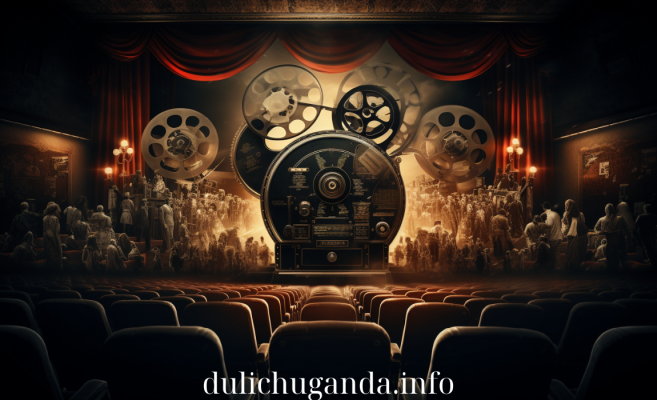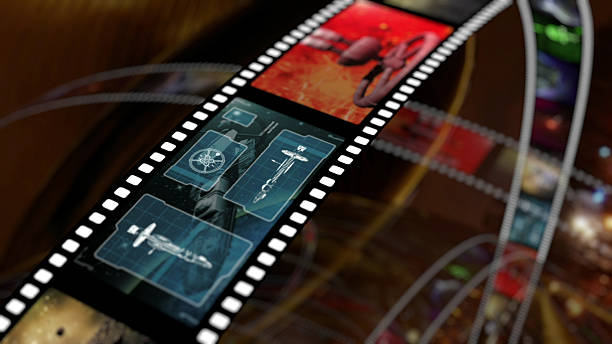In a rapidly evolving cinematic landscape, staying informed about the latest films can be both exciting and overwhelming. Expert film reviews are a valuable resource for gaining in-depth perspectives on the newest releases, helping audiences navigate the wide array of choices at their disposal. These reviews go beyond surface-level impressions, offering detailed insights into storylines, performances, direction, visual techniques, and the overall cultural significance of each film. For anyone who loves movies, understanding what critics think can enrich the viewing experience by providing context, highlighting nuances, and offering critiques that illuminate the strengths and weaknesses of each production.
1. Deep Narrative Analysis: Storytelling That Resonates
Film reviews are more than just recaps; they delve into the intricacies of the plot, analyzing whether the story arc holds together and how successfully the themes and messages are conveyed. A film’s ability to resonate with its audience often depends on the clarity and complexity of its narrative, which reviewers examine through various lenses.
- Subtext and Themes: Critics unpack the underlying themes, exploring whether the film presents a commentary on contemporary social issues, human nature, or morality. Themes like redemption, loss, love, and survival are analyzed for their originality and depth.
- Narrative Structure: How a story is told matters just as much as the story itself. Reviewers assess whether the pacing is smooth or uneven, whether the script takes audiences on an emotional journey, and whether the film builds tension effectively or stumbles in its execution. They also evaluate the film’s resolution—whether it leaves audiences satisfied or perplexed, and if it does so with intention and creativity.
- Character Arcs and Development: Rich, well-developed characters can elevate a film, giving it emotional weight and depth. Critics look at whether the characters are complex, relatable, and memorable. They also assess the progression of character arcs, evaluating how they contribute to the overall success or failure of the narrative.
2. Acting and Casting: Bringing Characters to Life
Casting and acting performances are often central to a film’s success. Expert film reviews give detailed assessments of how well actors embody their roles, exploring whether their performances are convincing, nuanced, or even transformative.
- Standout Performances: Reviews identify standout performances that define the film, from seasoned actors delivering powerhouse portrayals to emerging talent making a strong impression. These insights help viewers understand who carries the film and why their performances resonate long after the credits roll.
- Chemistry and Dynamics: In ensemble casts or films with a heavy focus on relationships, reviewers evaluate the chemistry between actors. Whether it’s the tension in a romantic drama or the camaraderie in an action film, strong actor dynamics can significantly elevate a film’s emotional depth.
- Casting Choices: Reviews also critique whether casting decisions were well-suited to the roles. Did the actors embody the characters’ personalities, motivations, and emotional arcs? Was there a mismatch that detracted from the film’s impact? Casting can either enhance or hinder a film’s ability to connect with its audience.
3. Directorial Vision and Cinematic Techniques
A film’s direction is often the key to its success, and expert critics assess how well directors bring their creative visions to life on screen. This includes everything from shot composition to editing choices, pacing, and the overall tone and atmosphere of the film.
- Directorial Style: Each director brings their unique style to a film, and reviews often highlight how these choices shape the viewing experience. Whether the direction is subtle and character-driven or visually striking and avant-garde, critics explore how well these elements align with the story and engage the audience.
- Visual Storytelling: Cinematography is one of the most essential elements in crafting the tone of a film. Critics analyze how the camera is used to tell the story—whether through sweeping landscapes, intimate close-ups, or innovative shots. They also discuss the effectiveness of visual effects, from CGI in sci-fi and action films to practical effects in dramas or horror.
- Editing and Pacing: The flow of a film can greatly affect its impact. Expert reviewers scrutinize the editing, examining whether scenes transition smoothly and maintain the story’s momentum. They also assess the pacing—whether it strikes the right balance between slow, contemplative moments and more dynamic, intense sequences.
4. Soundtrack and Sound Design: Elevating the Emotional Experience
Music and sound are often the subtle yet powerful forces that elevate a film, amplifying its emotional and atmospheric impact. Expert reviewers take note of how a film’s score and sound design contribute to the storytelling, enhancing the emotional resonance of key moments or helping to create a sense of immersion.
- Musical Score: Reviews highlight the effectiveness of the film’s score, whether it heightens the tension, adds emotional depth, or enhances the overall tone of the movie. From soaring orchestral pieces in epics to minimalist soundscapes in indie films, music can make or break a film’s emotional impact.
- Sound Effects: In certain genres, such as horror or action, sound design plays a crucial role in creating atmosphere. Expert critics evaluate whether the sound effects are well-crafted and integrated into the film, adding to the suspense, drama, or excitement.
5. Genre-Specific Excellence: Mastering the Art of Each Film Type
Film reviews often tailor their critiques to the expectations of the specific genre, recognizing that different genres require distinct storytelling methods, technical skills, and audience engagement.
- Comedy: Comedic timing and delivery are essential in making a comedy successful. Reviewers assess whether the humor is fresh, relevant, and executed well, or if the jokes fall flat.
- Drama: In drama, the emotional weight and complexity of the characters often take center stage. Critics look for subtle performances, rich dialogue, and deeply affecting moments that create lasting impact.
- Action and Sci-Fi: For these genres, reviews often focus on the choreography of fight scenes, the creativity of special effects, and the ability to keep audiences on the edge of their seats. Critics analyze whether the spectacle enhances the story or overshadows it.
6. Audience Appeal and Broader Cultural Impact
Expert film reviews also take into account how well a film appeals to its intended audience and its potential cultural significance. This aspect of film critique touches on whether a film resonates with the broader public or becomes a critical darling without widespread appeal.
- Target Demographic: Reviews assess how well a film meets the expectations of its target audience, whether it’s a blockbuster appealing to mainstream viewers or an art-house film aimed at niche audiences. Critics often explore whether the film effectively balances entertainment with deeper messages.
- Cultural Relevance: Many films engage with contemporary social issues or cultural themes. Reviewers examine whether these films offer insightful commentary or provoke thought on pressing topics such as race, gender, politics, or identity. They also discuss a film’s potential legacy and its place within broader societal conversations.
7. Final Verdict: Is It Worth Watching?
Ultimately, expert film reviews answer the most critical question: is the film worth your time? Critics weigh the pros and cons of each element, from story and performances to direction and technical execution, offering a nuanced final assessment that helps guide viewers’ choices. For cinephiles, these reviews provide a roadmap to understanding and appreciating the art of filmmaking, allowing them to enjoy movies on a deeper level and make more informed viewing decisions.
Conclusion
Reading top film reviews is a rewarding way to enhance your movie-watching experience. By exploring in-depth analysis of the story, performances, direction, and technical elements, these expert opinions offer valuable insights into what makes a film great—or not. Whether you’re looking for the next must-see movie or simply want to deepen your understanding of cinema, reviews can provide the clarity and context you need to make the most of your time at the movies.






